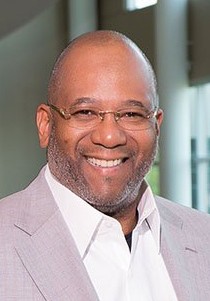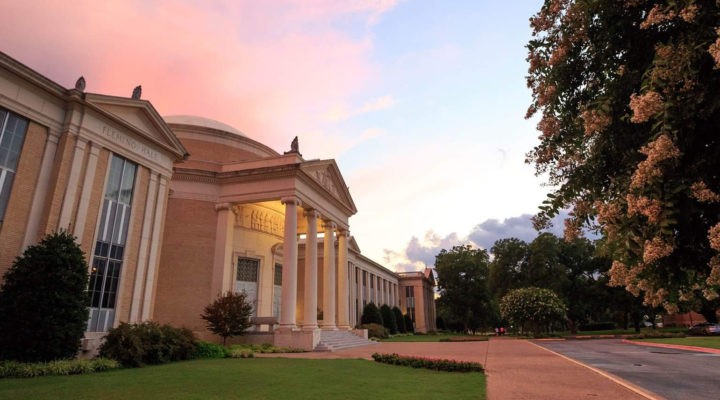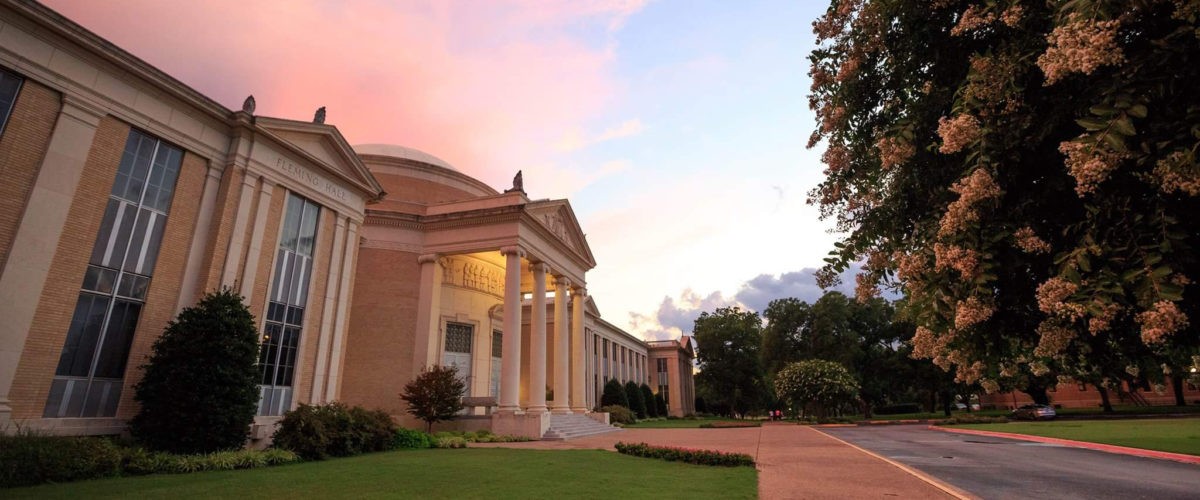Another prominent Black Baptist pastor has challenged the six Southern Baptist Convention seminary presidents for their critique of Critical Race Theory, saying as a result he is abandoning doctoral studies at one of the seminaries and disassociating with the SBC entirely.
The comments by Ralph West, pastor of The Church Without Walls in Houston, were made in response to a Nov. 30 declaration by the six SBC presidents that Critical Race Theory is “incompatible” with the Baptist Faith & Message, the SBC’s doctrinal statement, and therefore must not be taught in the seminaries.

Ralph West
West wrote an op-ed published online by the Texas Baptist Standard Dec. 16, one day after BNG published an interview with influential West Coast pastor J. Alfred Smith Sr., in which he excoriated the SBC seminary presidents for their statement and accused them of being “complicit with evil.”
“My dear brothers’ bias is apparent to all of us,” West wrote. “Instead of reaching out to fellow brothers and sisters who have lived with the reality of racism in formulating their view, these six men took it upon themselves to dictate how we should think about racism.”
In that, the six white male presidents of the SBC seminaries are “no different than the Supreme Court” in 1896 when it ruled in Plessy v. Ferguson that Black and white Americans are equal while still being separate.
“You cannot claim to uphold equality without attacking the very systems undermining it,” West said. “The Supreme Court also thought they believed in fairness and justice.”
The SBC seminary presidents, while eschewing Critical Race Theory, said they denounced racism. But that doesn’t make sense, West charged. “A general condemnation of racism is insufficient in a time when there are specific instances of it that go unaddressed. These men have covered their eyes and ears from seeing the faces and hearing the voices of those who know the truth of it. And thus, these men have given away their authority to speak on these matters.”
“These men have covered their eyes and ears from seeing the faces and hearing the voices of those who know the truth of it.”
West said he does not personally “offer a full-throated affirmation of all of the tenets of Critical Race Theory and conceptions of Intersectionality,” because he is aware these concepts have secular roots. But having secular roots does not automatically make an idea incompatible with the gospel of Jesus Christ, he added.
“As an African American Christian, as a pastor in the Lord’s church, I stand against this assessment, and I strongly disagree with the seminary presidents.”
West cited several Scripture passages to affirm his belief in salvation alone through faith in Jesus Christ, a core idea to Baptist theology.
“How is this truth at all diminished by anything claimed in Critical Race Theory or Intersectionality?” he asked.
If the seminary presidents want so strictly to separate religious and secular ideas, they should stop revering Thomas Jefferson, he said. Jefferson, a Deist and not a conventional Christian in his beliefs, penned the words of the Declaration of Independence that “all men are created equal.”
The seminary presidents say they affirm Jefferson’s words, West noted, and they do so “because it is true” and because “it aligns with the fact that Jesus as Lord reigns over a creation made in the image of God.”
“If Jesus reigns in righteousness and Jefferson, though a denier of the faith, made statements in agreement with that righteousness, then we are justified to repeat him,” West said. “Jefferson’s claims were in response to injustices done to the colonists in the context of an imperial framework.”
Therefore, the SBC seminary presidents ought to repent of their own racism and the historical racism of their institutions and seek to help their students understand the systems of oppression that still operate in America today, the pastor suggested.
“One would expect, with their sincere rejection of racism, they would speak to instances of it in our culture.”
“I am uncertain as to why these men found it necessary even to associate their affirmation of the 2000 Baptist Faith & Message with a rejection of Critical Race Theory. One would expect, with their sincere rejection of racism, they would speak to instances of it in our culture. They would stand against our president’s attempts to maintain the names of Confederate generals on monuments and military bases. One would expect they would stand against the rise of anti-Semitism and racism seen in groups like the Proud Boys. They would stand against police violence against Black bodies and stand in solidarity with the Black community. They would call the names of George Floyd, Breonna Taylor and Ahmaud Arbery. But they have not done that.
“Their stand against racism rings hollow when in their next breath they reject theories that have been helpful in framing the problem of racism,” he concluded.
Frameworks of thinking such as Critical Race Theory are not on par with the biblical text but may be used to better understand the biblical text, West said.
“And yet, in this time, these men chose to castigate a framework that points out a truth that cannot be denied. American history has been tainted with racism. America codified it. And more, our public and private institutions propagated it.”
Baptist Press, news service of the SBC, reported Adam Greenway, president of Southwestern Baptist Theological Seminary in Fort Worth, Texas, offering explicit affirmation of the seminary presidents’ statement. He said it “reflects Southwestern Seminary’s confessional commitments and our unfaltering cooperation with the Southern Baptist Convention of churches.”
West recently returned to Southwestern as a doctoral student, wanting to support Greenway’s reforms at the school in the aftermath of a previous administration.
“The statement on Critical Race Theory and Intersectionality has soiled that good faith.”
“When I came back ‘home’ to Southwestern, I even encouraged other ministers to do the same,” he noted. “I took President Adam Greenway’s invitation to return as a statement of good faith, that the seminary wanted to welcome me and many other Black ministers to contribute to its legacy.
“The statement on Critical Race Theory and Intersectionality has soiled that good faith. I cannot maintain my affiliation any longer and therefore am withdrawing from Southwestern Seminary. Nor will I associate with the SBC any longer.”
In contrast, West said he proudly will continue his affiliation with Baylor University’s George W. Truett Theological Seminary, where he has been an adjunct faculty member since 2008. “Truett Seminary courageously continues to diversify. Truett boldly engages with the crucial issues concerning students and faculty of color in their community. This is what the body of Christ needs right now.”
Ironically, Truett Seminary was created in 1993 in response to an earlier crisis at Southwestern Seminary, after fundamentalist trustees fired President Russell Dilday as part of a larger sweep of control of the six SBC seminaries.
Today, rather than making declarations against frameworks that seek to expose systemic racism, the SBC seminary presidents need to repent, West concluded.
“What the SBC seminary presidents have done has brought division and confusion to the body of Christ. They must repent and seek reconciliation with those who can properly inform them of the wrong they have done. They must ask the Lord to open their hearts to hear the truth of the gospel of Jesus Christ and how Jesus’ reign truly should impact our society.”
Related articles:
SBC seminary presidents are ‘complicit with evil,’ revered California pastor says
SBC seminary presidents are propagating fear to maintain control | Laura Levens
Is it time for Black Christians to give up on the SBC? | Corrie Shull
How I learned to name my oppression — and my privilege | Meredith Stone


